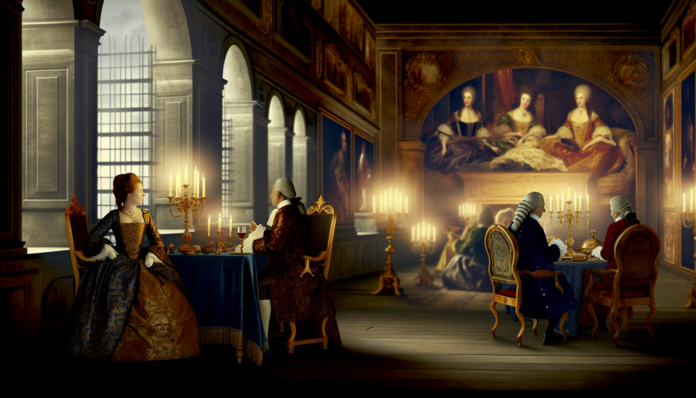Introduction
In the early 19th century, Queen Caroline of Brunswick found herself at the center of a scandal that would reverberate through British society and politics. This event, characterized as one of the most sensational of its time, challenged societal norms surrounding marriage, fidelity, and femininity. As the estranged wife of King George IV, Caroline’s story unfolds amidst a backdrop of rigid moral attitudes where public decorum was paramount, and transgressions were met with harsh judgment.
The Scandal
In 1820, Queen Caroline returned to England after years of living abroad. Her arrival came at a time when public opinion was deeply divided regarding her estrangement from George IV, who sought to divorce her and strip her of her royal title. The tipping point came when allegations arose surrounding Caroline’s potential affair with an Italian officer, Bartolomeo Pergami.
- Key Events:
- Caroline’s return was marked by a grand procession, garnering public support.
- Rumors of her intimate relationship with Pergami swirled, leading to accusations of adultery.
- The scandal escalated dramatically in July 1820 when George IV attempted to pass the “Bill of Pains and Penalties” to formally strip Caroline of her title and a public trial was proposed.
Notable Details:
Witnesses claimed to have observed compromising situations between Caroline and Pergami. The most shocking elements included:
- Secretive meetings and shared accommodations.
- Evidence of scandalous behavior at her residence, leading to public speculation about their relationship.
Public Reactions:
The public was captivated, leading to protests and demonstrations both for and against Caroline. Supporters rallied, arguing for her right to love and freedom, while detractors sought to uphold the king’s authority.
- Quotes from the Time:
- A pamphlet published in support of Caroline read, “She is a queen by birthright, and we shall not see her treated as a common criminal.”
Moral and Cultural Analysis
Society’s reaction to Caroline’s allegations was multifaceted. While many citizens largely sympathized with her plight, viewing her as a victim of an oppressive patriarchy, the political elite maintained a starkly different perspective. The proposed divorce and subsequent trial were marked not just by the desire to eliminate Caroline’s influence, but also to reinforce patriarchal control.
- Consequences:
- Caroline was ultimately denied a place at George IV’s coronation, but her public support burgeoned, highlighting a major shift in societal values.
- With the trial ultimately failing to convict her, Caroline’s battle became emblematic of the struggle against oppressive norms.
Modern Comparison:
Today, many aspects of Caroline’s scandal resonate with contemporary discussions surrounding personal autonomy and #MeToo movements. The public’s involvement in her defense echoes modern social media campaigns advocating for individuals facing patriarchal oppression.
- Modern Values:
- Where once society condemned her for her alleged infidelity, current sentiments would likely revolve around her right to personal happiness and the criticisms of a public figure’s private life.
As we examine Queen Caroline’s story, it becomes clear how much cultural views of love, loyalty, and authority have transformed in the wake of shifting morals and values. Her tale is not just one of scandal; it is a reflection of the ongoing battle for personal agency and dignity amidst societal scrutiny.

